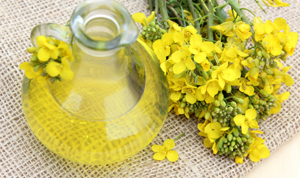10/04/2024
Healthy rapeseed oil?

There are interesting studies and reports from the environment on rapeseed oil, which, in Peter-Hansen Volkmann's opinion, fundamentally prohibit its use as a foodstuff - even as organic rapeseed oil.
Until the early 1970s, rapeseed oil was a technical oil that was unfit for human consumption due to the erucic acid it contained. Only the hybrid breeding of the so-called "00" rapeseed (double zero rapeseed) was free of erucic acid and therefore apparently suitable for human consumption. The rapeseed oil produced from this was valued above all for its "optimal" fatty acid composition with many omega-3 fatty acids.
At that time, various feeding trials with the new "miracle rapeseed" were carried out in the animal nutrition department at Kiel University - with disastrous results. Chickens that were fed increasing proportions of rapeseed in their fattening feed until they were ready for slaughter were only really ready for slaughter at the target time if they had little or no rapeseed. Chickens that had only been fed rapeseed were starving little blackbirds at the end of the twelve weeks. Even those with 50 to 90 % rapeseed did not fare much better.
By contrast, organic linseed oil and organic olive oil, both of which also contain valuable omega-3 fatty acids, are much more recommendable, with linseed oil easily outperforming the much-praised chia seeds.
(After: Volkmann, P.-H.: Darm gesund - Mensch gesund! Quite simply!, VBN-Verlag 2017)































